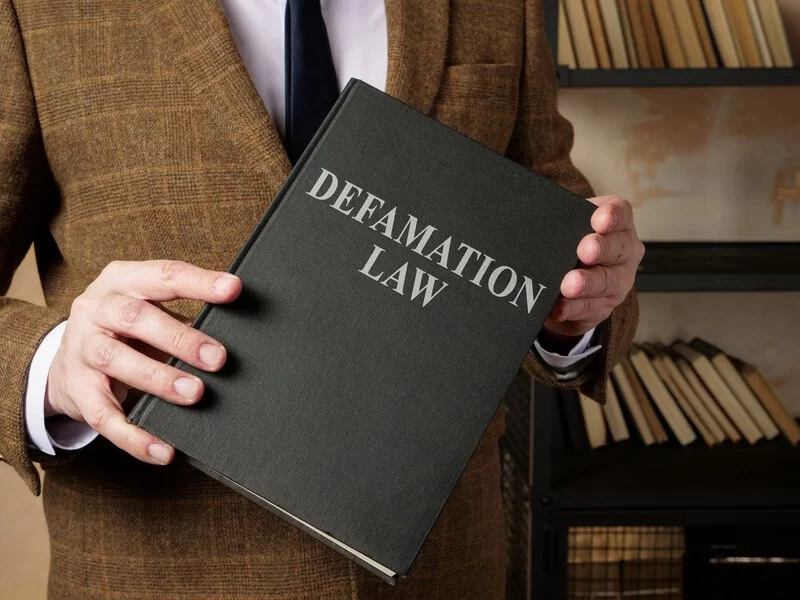- understanding-defamation-lawsuits-what-it-means-and-why-it-matters
- initial-steps-to-take-after-being-sued-for-defamation
- building-your-defense-strategies-against-defamation-claims
- case-study-john-vs-media-house-navigating-defamation-charges
- working-with-a-lawyer-the-key-to-successful-defamation-defense
- why-choose-fred-miller-lawyer-your-trusted-partner-in-defamation-cases
1. Understanding Defamation Lawsuits: What It Means and Why It Matters
Being sued for defamation can be alarming, especially if it stems from something you said online or in a public setting. Defamation involves making a false statement about someone that damages their reputation. It's typically categorized into two types: libel (written) and slander (spoken).
These lawsuits are more common than people realize, particularly in the digital age where a single tweet or Facebook comment can spiral into legal action. If you’ve found yourself asking, “What to do if you’re sued for defamation?” — you’re not alone, and there are concrete steps you can take to protect yourself legally and personally.
2. Initial Steps to Take After Being Sued for Defamation
2.1 Do Not Panic – But Do Act Swiftly
While it’s natural to feel overwhelmed, it’s critical to remain calm and avoid making the situation worse. Do not delete posts or contact the other party. Anything you do at this point could be used against you in court.
2.2 Review the Complaint Carefully
Once you receive the lawsuit paperwork, read every word carefully. Note what the plaintiff claims, the specific statements they consider defamatory, and where those statements appeared. This will become the foundation of your legal strategy.
2.3 Preserve All Related Evidence
Save screenshots, emails, and any communication related to the alleged defamatory statement. This documentation can serve as a vital tool for your legal defense.
2.4 Avoid Public Commentary
Do not post anything on social media regarding the lawsuit. Even if you believe you’re right, public statements could be twisted and worsen your situation. Silence is strategy.
3. Building Your Defense: Strategies Against Defamation Claims
3.1 Truth as a Defense
The most powerful defense against defamation is truth. If the statement you made is factually accurate, it’s not defamation — regardless of how damaging it might be to someone’s reputation.
3.2 Opinion vs. Fact
Courts often distinguish between facts and opinions. If your statement is clearly a personal opinion rather than a provable fact, it may be protected under the First Amendment.
3.3 Consent and Public Figures
If the person suing is a public figure (like a celebrity or politician), they must prove “actual malice” — that you knowingly spread false information or acted with reckless disregard for the truth. That’s a much higher bar than for private individuals.
3.4 Retraction and Apology
In some cases, issuing a public apology and retracting the statement can reduce damages or even lead to the case being dropped. However, consult your lawyer before taking this route, as it may be interpreted as an admission of guilt.
4. Case Study: John vs. Media House – Navigating Defamation Charges
In a widely covered case, John, a freelance blogger, was sued by a national media outlet for defamation after publishing an article alleging unethical journalism practices. John claimed the piece was based on credible sources and represented his personal opinion.
With the help of an experienced attorney, John proved that his article was based on publicly accessible facts and clearly labeled as opinion. The court ultimately dismissed the case, ruling that John's statements were protected speech.
This case highlights how crucial it is to distinguish opinion from accusation, and how professional legal guidance can make all the difference in navigating complex defamation laws.
5. Working with a Lawyer: The Key to Successful Defamation Defense
5.1 Legal Expertise Matters
Defamation laws vary significantly by jurisdiction, and missteps can be costly. An experienced defamation attorney understands local nuances and how to build a compelling defense tailored to your case.
5.2 Lawyer’s Role in Negotiation and Litigation
Whether the goal is dismissal, settlement, or courtroom victory, your lawyer will negotiate, file motions, and, if necessary, represent you at trial. Their skill and reputation can heavily influence the case’s outcome.
5.3 Costs and Outcomes
While legal fees are a consideration, the cost of losing a defamation suit — financially and reputationally — is often far greater. A good lawyer is not an expense; it's an investment in protecting your future.
6. Why Choose Fred Miller Lawyer: Your Trusted Partner in Defamation Cases
If you’ve been sued for defamation and don’t know where to turn, Fred Miller Lawyer offers strategic, personalized legal support to help you navigate the storm. With years of experience in handling high-profile defamation cases, our team knows how to protect your voice without putting your future at risk.
Whether you're an influencer, business owner, journalist, or private citizen, we’ll work with you to understand the facts, build a strong defense, and minimize legal exposure. Contact Fred Miller Lawyer today and take the first step toward reclaiming your peace of mind.


 immigration attorney falls church va
immigration attorney falls church va michael parks lawyer
michael parks lawyer joseph hurley delaware attorney
joseph hurley delaware attorney pendas law firm fort myers
pendas law firm fort myers abogado ernesto law group
abogado ernesto law group 31-00 47th ave long island city ny 11101
31-00 47th ave long island city ny 11101